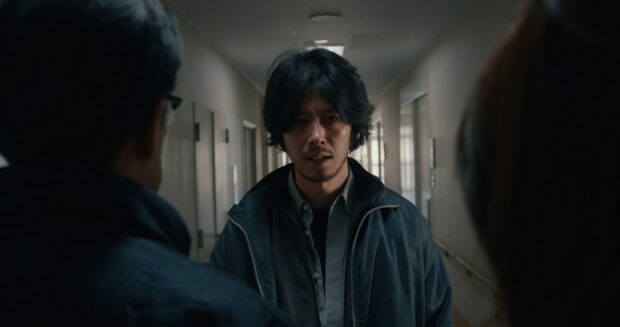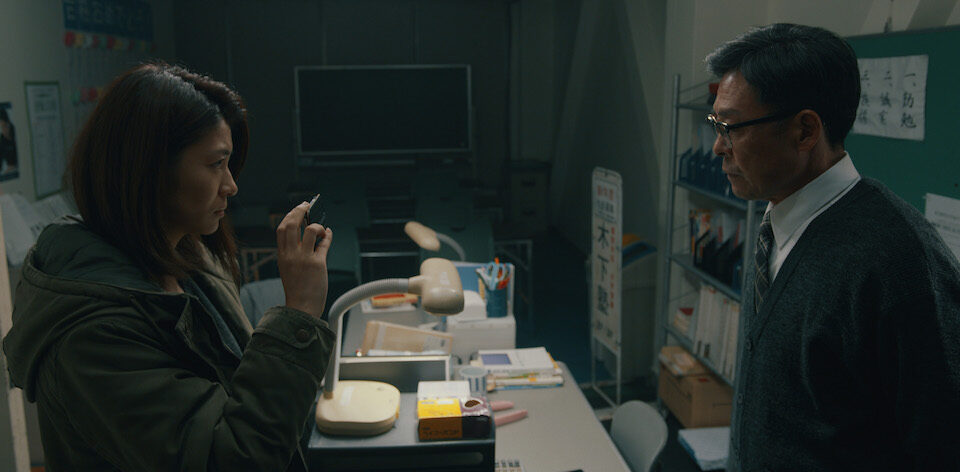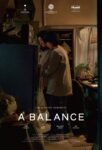When we first enter Yujiro Harumoto’s A BALANCE (由宇子の天秤), we are already seeing a filtered version of reality. Not long after meeting a man playing a flute by the river do we realise that he is being interviewed for a documentary being made by Yuko (Kumi Takiuchi).
It sets us up from the beginning to be critical of the surface version of a so-called objective truth. Yuko’s film is about a relationship between a teacher and a student that ended in two suicides, and she is determined to fight any editorial censorship that the TV network imposes.
When Yuko discovers that her father, a cram school teacher, is involved with one of his students, she must reassess her own ethical standards. She choose to hide the truth, making her complicit in a series of lies that mirror the ones she is investigating.

The Japanese title for this film is literally ‘Yuko’s Balance,’ and this is more indicative of the fine moral line the eponymous character is walking. Her quest for the truth, at least in terms of the one she is assembling in the edit room, clashes firmly with her practice. As a character piece, her attempts to shake Japan out of its “apathy” (as she terms it) and link past victims back to the world take her further away from a sense of community.
Harumoto’s film is certainly an ambitious one, attempting to cover a fair bit of ground: trial by media, sexual assault, and even abortion laws. The most successful of these is a subplot following the people who were doxed by social media and are not longer able to function on a day-to-day level. Yet even in the slightly long running time of 152 minutes, none of these feel adequately addressed. Perhaps it was just too hard to get that balance right in a single film.
Takiuchi, who gave a raw and captivating performance in It Feels So Good, once again commands the screen as Yuko. Constantly viewing the world through the lens of her cameras, when she finally lowers them she must confront some harsh realities – and the even scarier prospect of connecting people with the world.
The film ends with a bit of a double kick in the teeth for Yuko, where the balance finally collapses and the truth sinks in for everyone. It doesn’t quite land with the impact Harumoto may have intended, and arguably reveals the fragility of his large web. Nevertheless, it remains a solid character piece for a filmmaker and marks him as someone to continue watching.
2020 | Japan | DIRECTOR: Yujiro Harumoto | WRITER: Yujiro Harumoto | CAST: Kumi Takiuchi, Ken Mitsuishi, Masahiro Umeda, Yuumi Kawai, Yohta Kawase, Misa Wada, Mitsuko Oka, Yuya Matsuura, Ryo Ikeda, Tomoki Kimura | DISTRIBUTOR: Toei Company, Berlinale 2021 | RUNNING TIME: 152 minutes | RELEASE DATE: 1-5 March 2021 (GER)






